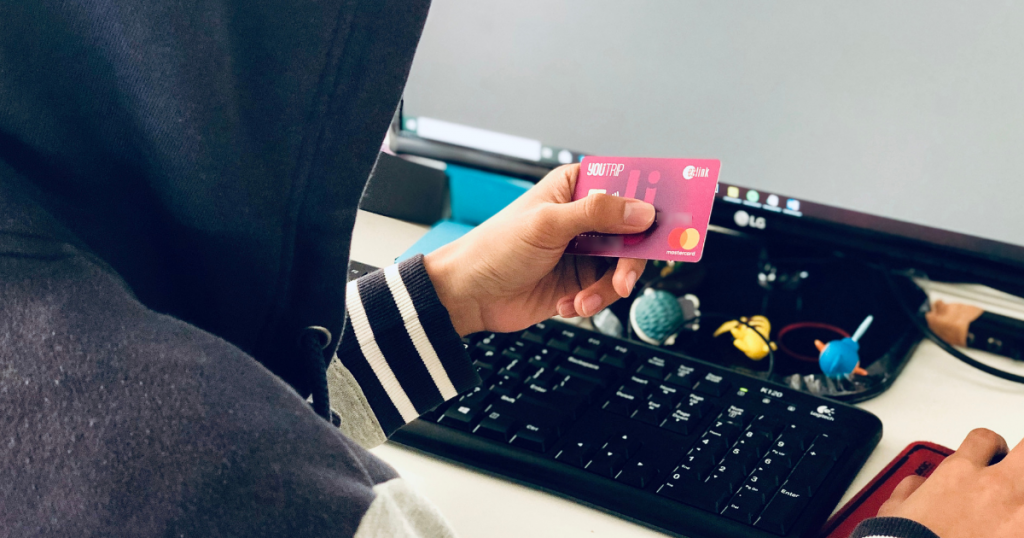When multi-currency wallet YouTrip launched in August 2018, we had an opportunity to test it out.
Topping up the wallet, converting it to the country’s currency, and seeing it reflected in the app took just under 3 minutes.
That’s a great boon for travellers who didn’t bring enough local currency – on the flipside, this convenience also makes committing fraud easy.
It was reported that “[more] than $96,000 in fraudulent credit card transactions were found” on YouTrip and the company then alerted the Singapore Police Force (SPF) on 1 February, handing over “conclusive findings”.
Fraud Foiled By Data Analytics
Thanks to YouTrip’s Fraud Monitoring System, over 85 fraudulent cases by 18 suspicious accounts were uncovered and immediately suspended.
Four individuals were arrested and another 15 suspects have been brought in for investigations.
The company has described this as “a case of syndicated credit card fraud using stolen credit cards to perform unauthorised top-ups in the YouTrip wallet”.
From late December 2018 to January 2019, the Fraud Monitoring System flagged two key signals of suspicious activities:
- Signal 1: High top-up amount followed by immediate purchases or cash withdrawals to deplete the account balance
- Signal 2: High frequency of failed top-ups with incorrect credit/debit card credentials
According to YouTrip, it was a combination of these signals and their employment of data analytic techniques that led them to identify “a specific group of users” that displayed these behaviours.
They have also set up a team of fraud monitoring specialists and engineers to boost the crackdown on potentially fraudulent activities such as common merchant names (for example, overseas ATM locations), common transaction locations, chargebacks, and public reports.

To further prevent top-ups on accounts using stolen credit or debit cards, YouTrip last week rolled out a security update that requires users to enter a One-Time Password (OTP) whenever they add a credit or debit card for the first time on the app.
The OTP will be sent via SMS by the respective bank.
Since the suspects have been contained, YouTrip assured all users that they have not been affected and to use the card as usual.
Didn’t Make Those Frivolous Purchases?

So why do frauds tend to use overseas ATMs or stay at the same place to commit their crimes if it’s such a giveaway?
Mr Kelvin Lam, Country Manager for YouTrip Singapore, explained, “In our experience in fraud monitoring, it’s common for people to conduct these activities overseas as it generally requires the authorities and financial institutions more information and a longer time to investigate.”
“For instance, if these users had carried out these similar activities in Singapore, I believe it would have taken the local authorities less time to take action.”
He emphasised that YouTrip actively flags “potential fraud activity as it happens” through data analytics and signs of unusual transaction patterns.
“We then move to block the accounts linked to these transaction activities for further investigation. And in this case, we informed the police immediately after our dedicated task force concluded with their findings of this as a possible criminal offence,” Mr Lam said.
Before YouTrip was launched, they had already set up their fraud monitoring system and team of specialists, Mr Lam revealed.
On how users can safeguard their own credit cards, he provided two perspectives: prevention and remediation.
“In the case of prevention, the golden rule, of course, is to never reveal your credit card information publicly.”
He then cites the example of their new security update that mandates users to enter an OTP whenever they add a new card which “effectively prevents a case of fraudulent use of stolen cards to perform top-ups on YouTrip”.
For the remediation part, he said it depends on how fast the user reacts.
“This is why we’ve made real-time notification a core feature of our wallet programme. We wanted users to be informed of fraudulent transactions as it happens and to take the remedial actions in the shortest reaction time possible,” Mr Lam shared.
“The second part of remediation concerns the time taken for users to contact the card-issuing bank to block transactions. Traditionally, users need to call a hotline to make that happen, and this could be a real hassle especially for travellers on the go.”

YouTrip users can lock and unlock their lost or abused card instantly with just a tap through the YouTrip app.
In short, it’s good to check your bank statements regularly and enable notifications from banks.
Check out YouTrip’s FAQ here on security and stay vigilant!
Featured Image Credit: Vulcan Post











